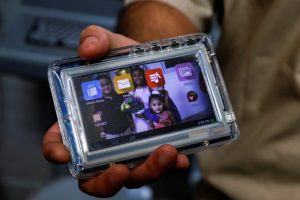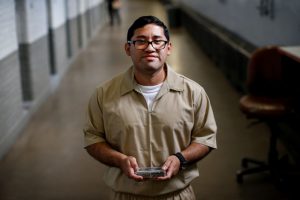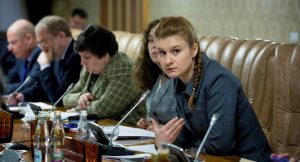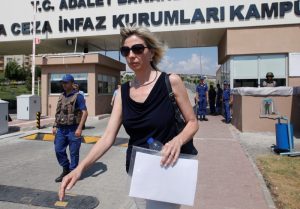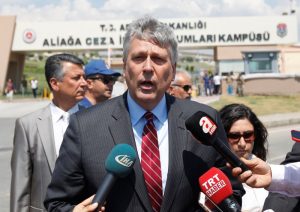
By Andrew Osborn and Olesya Astakhova
MOSCOW (Reuters) – Russian President Vladimir Putin on Thursday accused forces in the United States of trying to undermine the success of his first summit with U.S. President Donald Trump, but said the two leaders had begun to improve U.S.-Russia ties anyway.
Putin and Trump sat down for their first summit in Helsinki on Monday, an event that sparked a storm of criticism in the United States after Trump refused to blame the Russian leader for meddling in the 2016 U.S. election, something Putin denies.
Trump later said he had misspoken and accused “some people” of hating the fact that he got along with Putin. The White House has been struggling to contain a political outcry and confusion over the summit ever since.
Putin, speaking to Russian diplomats from around the world assembled in Moscow, said on Thursday the Helsinki summit had been successful.
“It was successful overall and led to some useful agreements. Of course, let’s see how events will develop further,” he said, without disclosing the nature of the agreements he referred to.
However, Putin said “powerful” U.S. forces were trying to sabotage what the summit had achieved.
“We see that there are forces in the United States that are prepared to casually sacrifice Russian-U.S. relations, to sacrifice them for their ambitions in an internal political battle in the United States.”
Those same forces appeared ready to sacrifice hundreds of thousands of U.S. jobs and hurt U.S. business and security while waging their divisive political battle, Putin said.
‘NARROW PARTY INTERESTS’
Putin did not name names, but spoke of U.S. politicians who put their “narrow party interests” above the best interests of the United States and were powerful enough to be able to foist their questionable “stories” on millions of Americans.
He said it would have been naive to expect that the Helsinki summit could have resolved problems that had built up over many years in the space of a few hours.
“Despite the difference in opinions (with Trump), we did agree that Russian-U.S. relations are in an extremely unsatisfactory state. In many respects, they are even worse than during the Cold War,” he said.
But the two leaders had at least made a start when it came to improving relations.
“The path to positive changes has all the same begun,” said Putin. “It’s important that a full-scale meeting has finally taken place allowing us to talk directly.”
Putin warned however of the dangers of Moscow and Washington failing to continue to mend ties, saying the New START strategic arms reduction treaty would expire soon unless both countries took action.
“If today, right now, work on extending it is not begun it will simply expire in a year and a half.”
(Additional reporting by Tom Balmforth and Gabrielle Tetrault-Farber; Writing by Andrew Osborn; Editing by Peter Graff)




